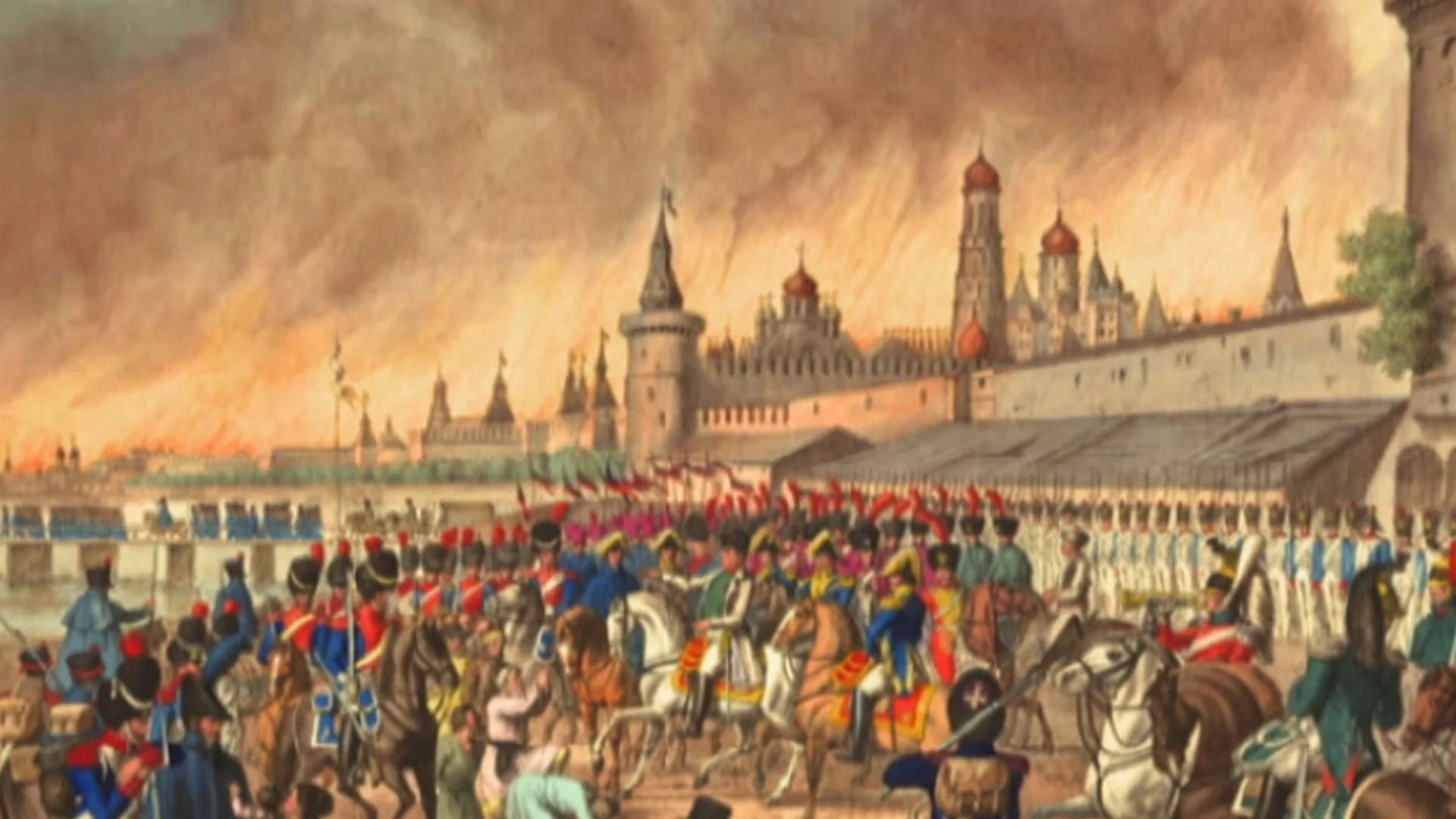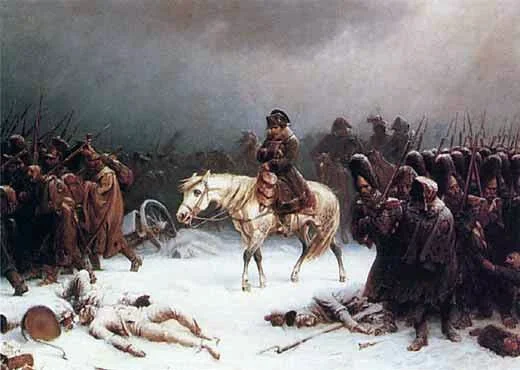Napoleon Bonaparte Invades Russia
In The Girl in the Glass, Napoleon and the French Army invade Russia to distract the Russian Army from the Epistolith passing through their southern lands. While this tactic allows the Epistolith to pass through uneventfully, the Russian invasion becomes a massive defeat for Napoleon, leading to his further defeat in Leipzig, Germany, at the Battle of the Nations.
In reality, the 1812 invasion of Russia by Napoleon resulted from declining Franco-Russian relations. This included Tsar Alexander I's refusal to fully participate in Napoleon's Continental System, Russia's desire to control Polish territories, and Napoleon's perception of Russia's diplomatic and military defiance.
In June 1812, Napoleon's Grande Armée, half a million men, crossed into Russia. The Russians employed harsh yet clever tactics, scorching the land as they retreated, leaving no supplies behind for the French. While bloody battles depleted Napoleon’s forces, this scorched earth policy inflicted more damage to the French Army. Even when the French captured Moscow, they didn’t benefit. The retreating Russians set the city ablaze, depriving the French of provisions and shelter. The harsh Russian winter further decimated Napoleon’s forces, losses from cold, hunger, and disease accounting for half of the French Army’s 380,000 deaths.
The invasion of Russia was a catastrophic failure for Napoleon and his empire. With fewer than 100,000 men returning, the French Army was effectively destroyed. This also severely damaged Napoleon's military reputation, and France’s allies, including Prussia and Austria, abandoned him.
Napoleon capturing Moscow, already set ablaze
Harsh Russian winter



